I’ve never installed shower tiles before, but I’m going to try now.
I’m looking at the shower with its exposed, grey, bare wall. On the floor next to the drain sits a bucket of grout that I’ve already mixed. I’m ready to apply it to the wall, but I don’t know where the trowel is.
“Turn around. A workbench just appeared behind you,” a disembodied voice instructs me. I comply and see a floating bench with a selection of tools, including a trowel. I move my cursor over it and click and hold the trigger button to clutch it. I accidentally let go and drop it.
“Oops. Just wait until the tool respawns,” the voice says. Seconds later, a new trowel appears and I continue my work.
I’m not installing real shower tiles, and I’m not even in a real bathroom. I’m in the Holoroom How-to booth at Lowe’s Burlington, Ont. location. It’s one of three stores in North America that’s outfitted with this pilot project, which has an HTC Vive unit rigged up to a computer in a modular room that’s constructed by local contractors.
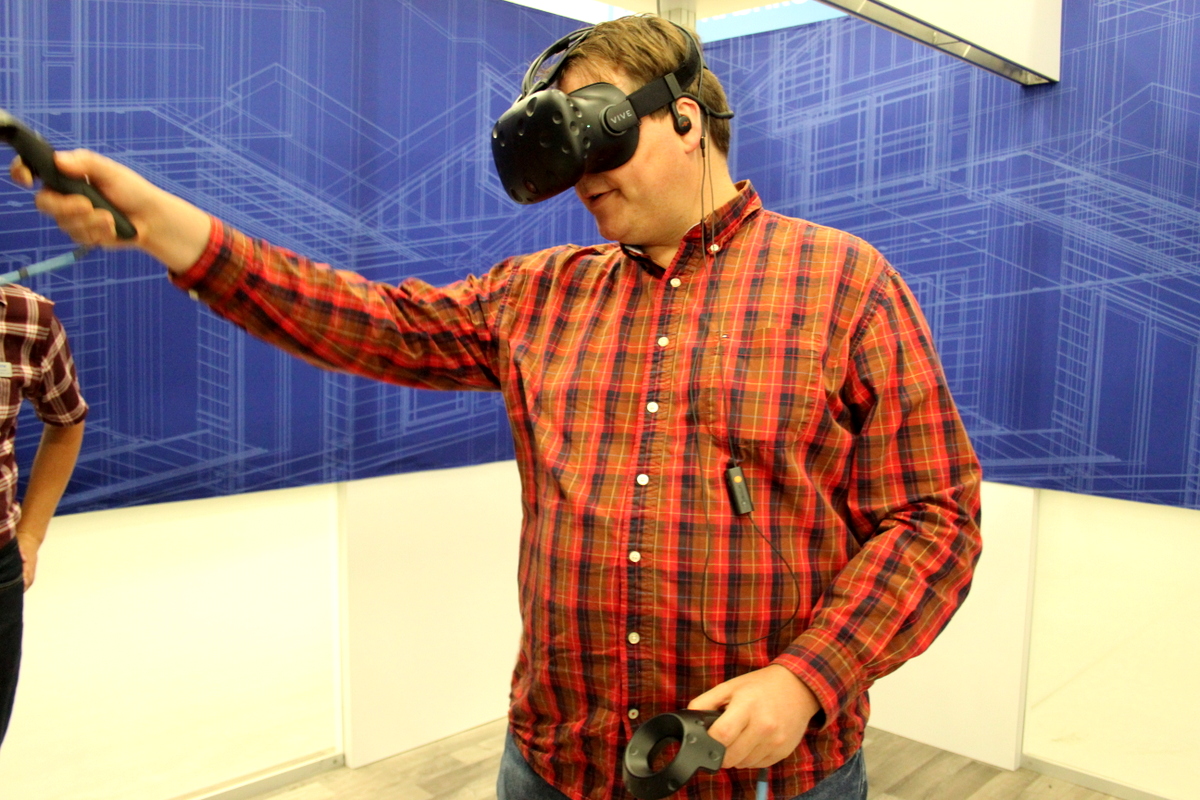
Straight out of Lowe’s Innovation Labs, the Holoroom concept started as a comic book created for the CEO’s personal reading. Introduced in March, it’s one of the first such pilots to be put to the test in Canada since Lowe’s acquired Canadian hardware chain Rona. Another Holoroom booth with the same simulation is being tested for the French-language market in a Boucherville, Que. Rona store. The project has yielded some exciting customer engagement results for Lowe’s and it could be the first of many pilots to use the Canadian market as a test bed.
Making first immersion impressions
When Lowe’s first ran a pilot for its Holoroom at the same Burlington, Ont. location in 2012, it impressed Claire Bara, then an executive with Rona. In life after acquisition, she is the vice-president of strategy and business insights for Lowe’s Canada.
“When Lowe’s was a competitor, I was reading about it as this innovative company in the U.S. and I thought it was quite surprising for a hardware company,” she says. “Now we have the opportunity to take advantage of that technology.”
The first Holoroom test, then done using Oculus Rift hardware, was focused on visualizing a kitchen renovation. Customers would choose their cabinets and finishings, and then be able to walk around a kitchen layout and see all of their choices blended together.
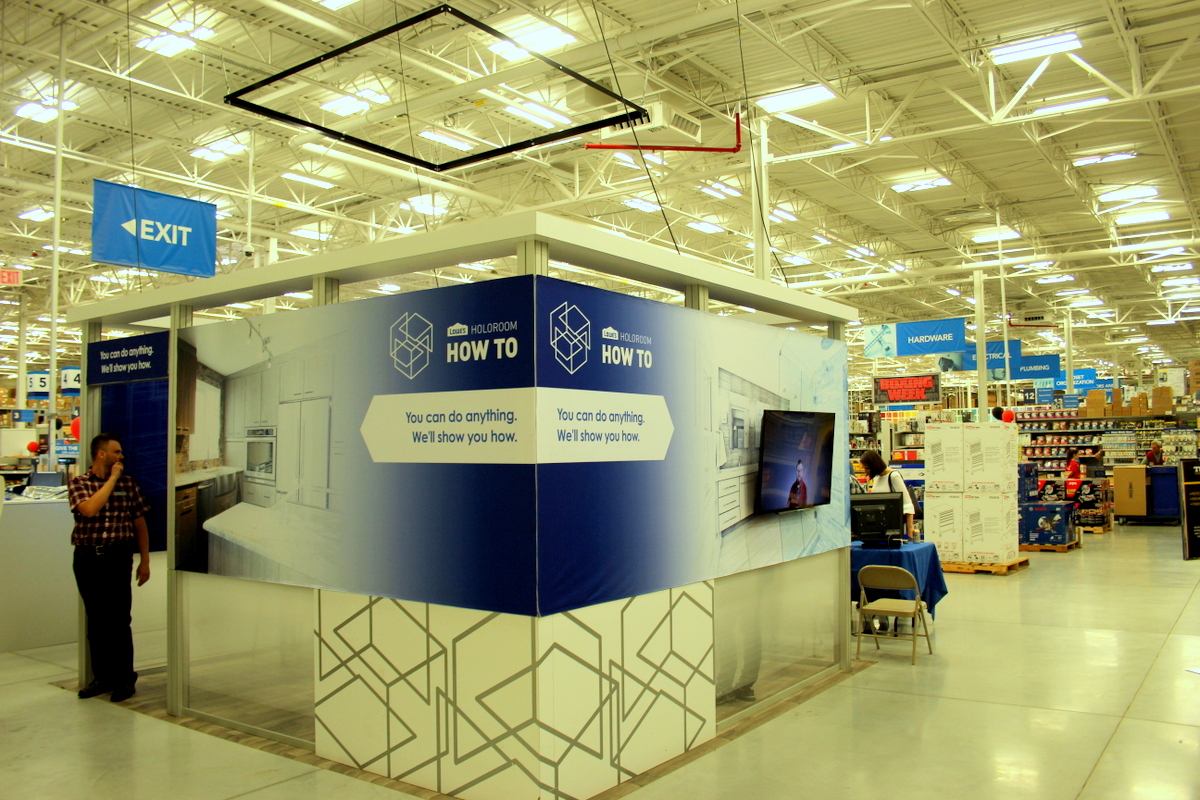
“What’s amazing about the Lab is they want to test their projects in real-life situations with real customers,” Bara says. “It’s interesting to the Lab to see how different types of the clientele are receptive to the technology.”
The new Holoroom How-to pilot seeks to educate customers on how to complete a project. The six-month pilot will help determine if customers are receptive to VR technology, but more importantly, test if it’s an effective way to educate customers on DIY projects.
“What are the other options to learn how to tile your shower?” Bara asks. “You’re going to Youtube.”
Early testing by Lowe’s Innovation Labs shows that VR is more effective than that. Recall of how to complete the task was boosted 40 per cent when customers took the VR tutorial instead of a Youtube tutorial.
“The idea is that one day we could have options for different home improvement projects,” she says. “Then suddenly, not only can people buy the product here, but they can go through the project in the Holoroom. That would be a distinctive element that would add value to our store.”
Comic book origin story
Holoroom How-to is just one example of a project born out of Lowe’s Innovation Labs’ wild approach to what it calls “narrative driven innovation.” The hardware company collects its marketing research and trends data and hands it over to science fiction writers. The writers are also given the “where and when” to place the narrative and are asked to develop a story about the convergence between people’s experience and technology.
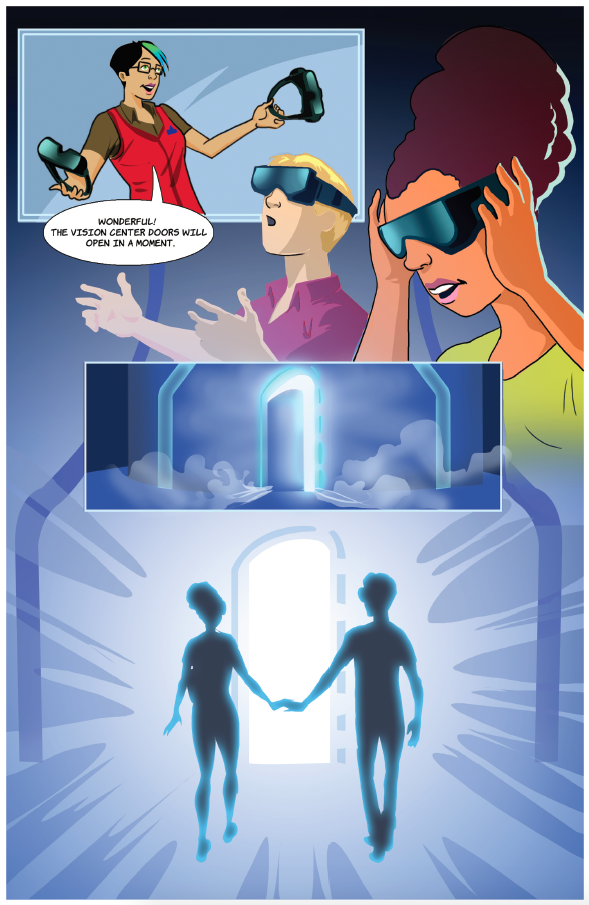
Then that story is turned into a comic book, and Kyle Nel, executive director at Lowe’s Innovation Labs, drops it off on his CEO’s desk. As a behavioural scientist, Nel believes this is the best approach to decide what’s worth working on in a fast-changing world. Plus, he’s getting response from his executive team.
“What came across loud and clear was that virtual and augmented reality is going to be very important to us,” he says. “From the perspective of how to do things fit into my house and for training too.”
The Seattle-based Labs division built the Holoroom How-to software on the Unity platform. To deploy the booth to the three different pilot stores (the one outside of Canada is located in Boston) Lowe’s partnered with an external agency for the finishing work. A general template of the physical booth is provided and locally-sourced vendors complete the construction.
True to his academic background, Nel is just as serious about testing how effective his technology is as he was about creating it. He hired a neuroscience company to wire up test subjects with EEG headsets and eye-tracking devices.
“It’s one thing to make it work,” he says. “It’s another to make it intuitive.”
The experiments showed what parts of the Holoroom How-to experience were too complicated, or too bright, or too boring. An algorithm matching the subject’s gaze and what they were looking at in the virtual room with their electrical activity on the surface of the brain was the basis for making those decisions.
“Just asking people if they liked it or not is not good enough,” Nel says.
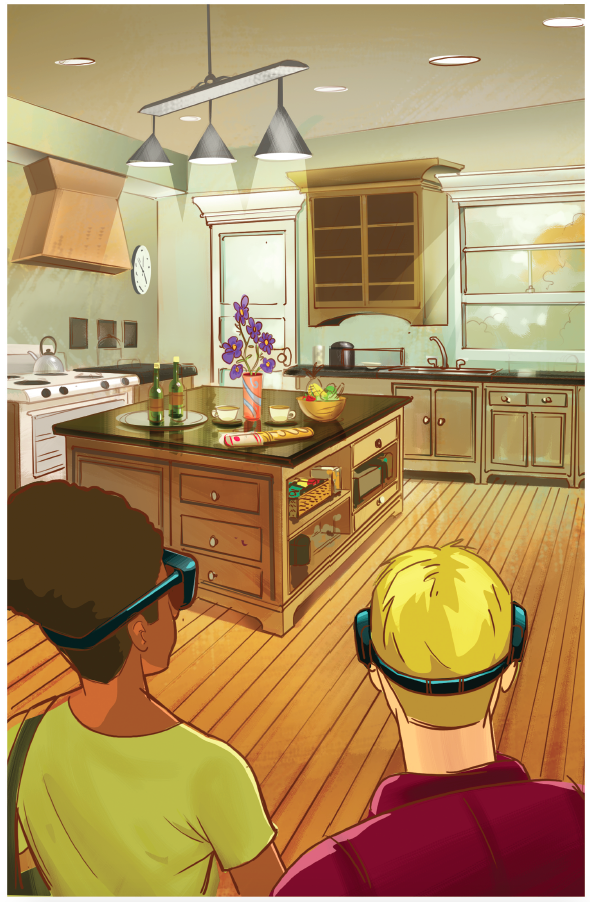
Nel considers the Holoroom project a success so far. He’s planning a big debrief on the pilot project and then following up by building more software to offer different training simulations. He anticipates the Holoroom booths that will remain in the current three locations at least, and possibly see an expansion.
Canada to see more of Lowe’s pilot projects
The experience of running the Holoroom pilots in Ontario and Quebec also has Nel jazzed about Canada as a test market.
“We’ve had a longstanding partnership with Lowe’s Canada,” he says. “Canada is a great place to try these things out. There’s a lot of tech in Canada and the citizens seem to be more tech-forward. We’ve learned a lot there.”
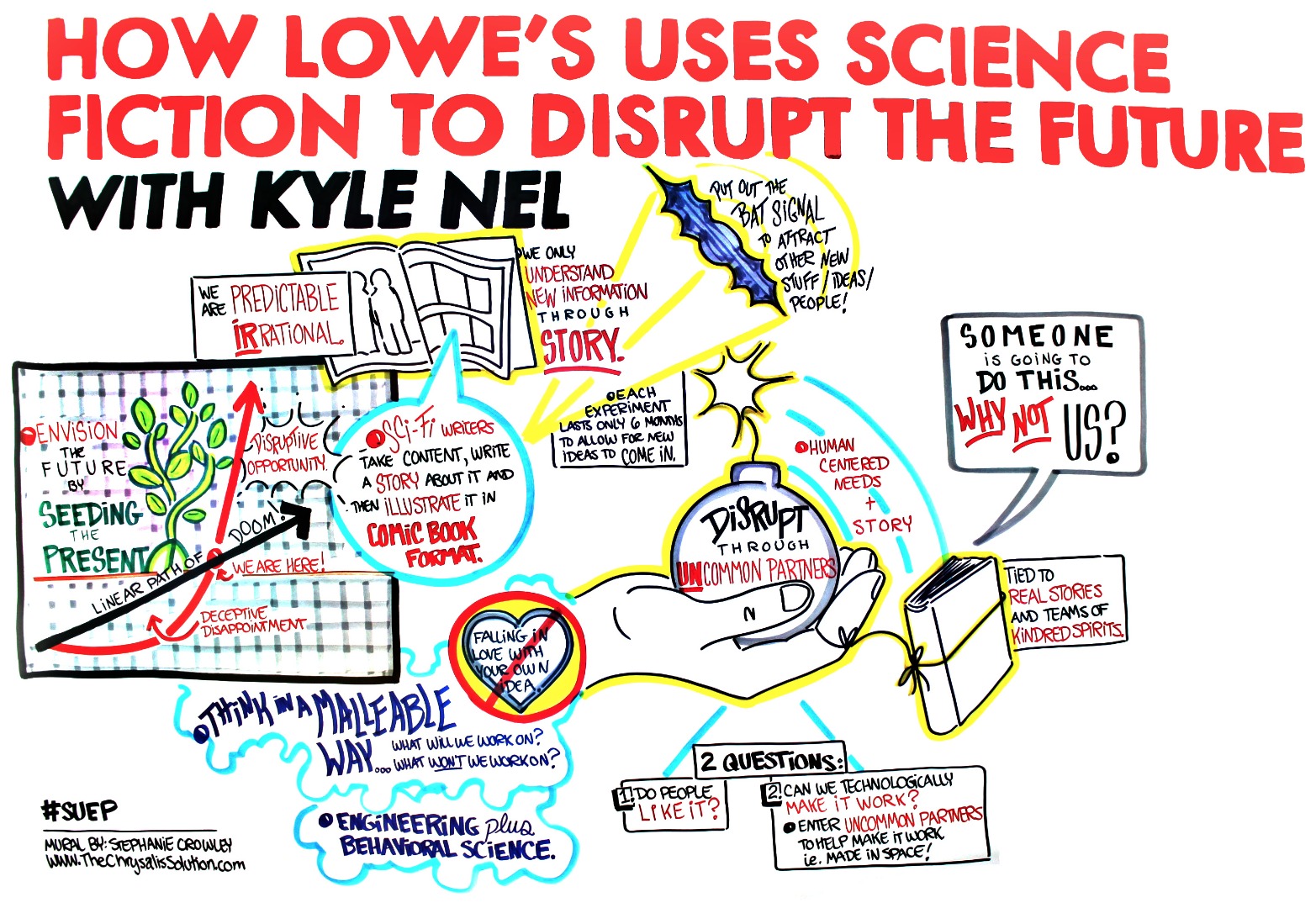
Lowe’s Canada executive Bara is on the same page. She says the project helps generate an element of surprise among customers that a home improvement retailer is developing such a project.
“This is just the beginning, there’s a lot of appetite for Lowe’s Innovation Lab to partner here.”
As for myself, I thankfully haven’t had to put my shower tile installation skills to test in a real-world situation yet. But when Lowe’s adds more how-to scenarios to its VR menu, I’ll be back to level up my DIY game.





